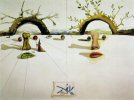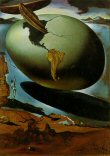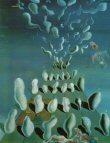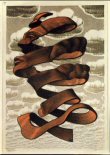When I was a child I believed that somewhere, somebody had the answers to all my questions about the world and about existence. It was because of knowing that sooner or later even I would have access to that knowledge that quietened my cognitive anxiety.
The very fact that knowledge was present somewhere, though hidden, I felt it was certainly obtainable, as if it was present in the air and just needed the proper antennas for being picked up. The Web didn’t exist then, nor did Google that provides almost the entire repository of human knowledge, and of course neither did I know Rupert Sheldrake’s morphic fields theory, much less the mystical ideas on universal consciousness.
But what happens to the process that produces knowledge, when we get it instantly through a Google search? Any media, mentioning McLuhan, is at the same time an extension and a castration. Google is an extension and a castration concerning our research and answer-finding capabilities.
[/en][it]
Da piccolo mi confortava pensare che “qualcuno” da “qualche parte” avesse le risposte alle mie domande sul mondo e sull’esistenza. Immaginavo che in questo modo prima o poi anch’io avrei potuto accedere a tale sapere. Questo pensiero mi placava l’ansia conoscitiva.
Il fatto che la conoscenza fosse da qualche parte, per quanto nascosta o poco accessibile, la sentivo comunque come disponibile, come se questa fosse presente nell’aria e necessitasse solo delle antenne giuste per essere captata. A quei tempi non esisteva il web nè Google che ci mette a disposizione quasi l’intero scibile umano, naturalmente non conoscevo le teorie dei campi morfici di Sheldrake e tantomeno le parole dei mistici sulla coscienza universale.
Ma cosa succede al processo interiore della conoscenza quando possiamo accedervi in pochi instanti tramite una ricerca con Google? Ogni media, ricordando McLuhan, è allo stesso tempo un’estensione e una castrazione. Google lo è rispetto alla nostra capacità di ricercare e di trovare risposte.
[/it] Leggi tutto “The Tao of Google ranking”









